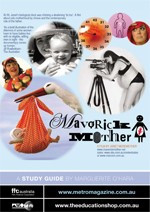Product Overview
In New York City in 1968 a revolution was under way in a tiny club called Max's Kansas City. When Andy Warhol's Factory superstars collided with the underground music scene at Max's, a scene that would be a precursor to punk rock was born. It would be the new sound, defined by the Velvet Underground, the New York Dolls and Iggy Pop, whose attitudes and music still influence us today. The queen of Max's was Australian journalist Lillian Roxon. She lived close to the Factory and knew Warhol, his superstars and the rock crowd who increasingly flocked to Max's to be seen and to hear the new sounds. Lillian energetically championed the bands and artists she saw as fresh and interesting, and mentored the emergent generation of rock managers, journalists and photographers. She was a visionary who understood how important music would be in shaping popular culture. She became known as 'the mother of rock' and documented and celebrated the world of popular music in her Rock Encyclopedia, first published in 1969.
Mother of Rock: The Life and Times of Lillian Roxon shines a light into the decadent world of Max's, examining Lillian's place in documenting the emerging rock revolution as it rolled over the US in the 1960s and early 1970s. Lillian's fascinating story is told by weaving her letters and published writings with the testimonies of rock celebrities, rock journalists and her friends and colleagues. The film draws on some of the best rock photography and archival sources from the 1960s and early 1970s. Mother of Rock features an amazing cast of interviewees: there are new interviews with Iggy Pop, Alice Cooper, Germaine Greer, Danny Fields, Lisa Robinson (Vanity Fair), Lenny Kaye (The Patti Smith Group), Richard Neville, Lillian's former boss Derryn Hinch, rock photographers Leee Black Childers and Anton Perich, and many of Lillian's closest personal friends, including author David Malouf and film producer Margaret Fink.
Curriculum links
This documentary could be used in senior secondary Cultural Studies, Women's Studies and Music. It could also be incorporated within a mainstream history context, as it provides opportunities for 'Students [to] analyse change and continuity over time and compare key aspects of past and present societies; for example, aspects of daily life, social and political ideas and structures, and cultural values and beliefs.' (VELS). Mother of Rock documents a period of staggering social change and through its focus on one pioneering female spirit, it raises many complex issues concerning the status of women; the power of popular culture; and changing attitudes to work, family and sex roles. Teachers please note: Mother of Rock includes frequent coarse language and adult sexual themes.







